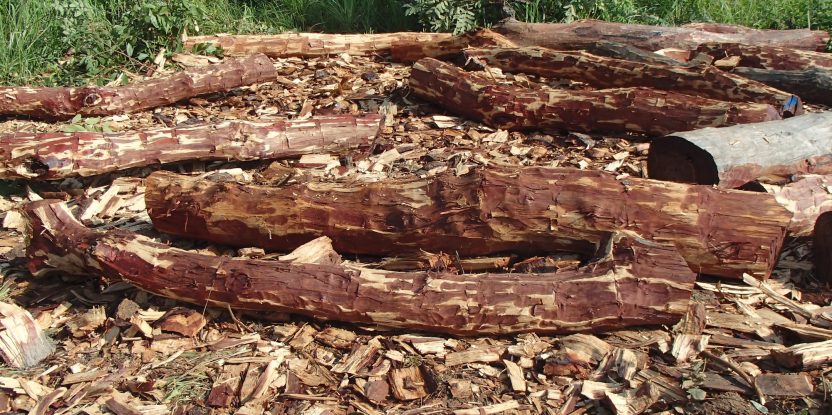
By Paolo Cerutti, originally published in Trade for Development News
The illegal trade in rosewood is a lucrative business affecting much of Southeast Asia and parts of Africa and South America.
Demand started to increase in West Africa 10 years ago and exports soared from zero to hundreds of millions of dollars. The exploitation of the red-hued hardwood, which is often used in furniture making, is causing environmental and socioeconomic hardship.
Through research conducted by the Center for International Forestry Research (CIFOR) in the fragile Miombo forests located between Zambia, the Democratic Republic of the Congo (DRC) and neighboring countries, more information is coming to light about the impact and consequences of trade of the wood known as, mukula (Pterocarpus tinctorius) in this area.
Over the past decade, about $9 billion of rosewood was imported into China, and this accounts only for wood officially listed as rosewood, which excludes many species sold as “rosewood” but not recorded as such, like mukula.
Yet, in the case of mukula, the supposedly straight trading line from Zambia to China is actually more of a zigzag, with a single container from Zambia perhaps loaded onto a ship leaving from at least five African ports (including those in Kenya, Tanzania, Mozambique, South Africa and Namibia) and stopping in transit countries (including Madagascar, India, the Philippines and Vietnam), where its contents could be mixed with other tree species.
Learn more about this research in Trade for Development News by clicking here.
We want you to share Forests News content, which is licensed under Creative Commons Attribution-NonCommercial-ShareAlike 4.0 International (CC BY-NC-SA 4.0). This means you are free to redistribute our material for non-commercial purposes. All we ask is that you give Forests News appropriate credit and link to the original Forests News content, indicate if changes were made, and distribute your contributions under the same Creative Commons license. You must notify Forests News if you repost, reprint or reuse our materials by contacting forestsnews@cifor-icraf.org.